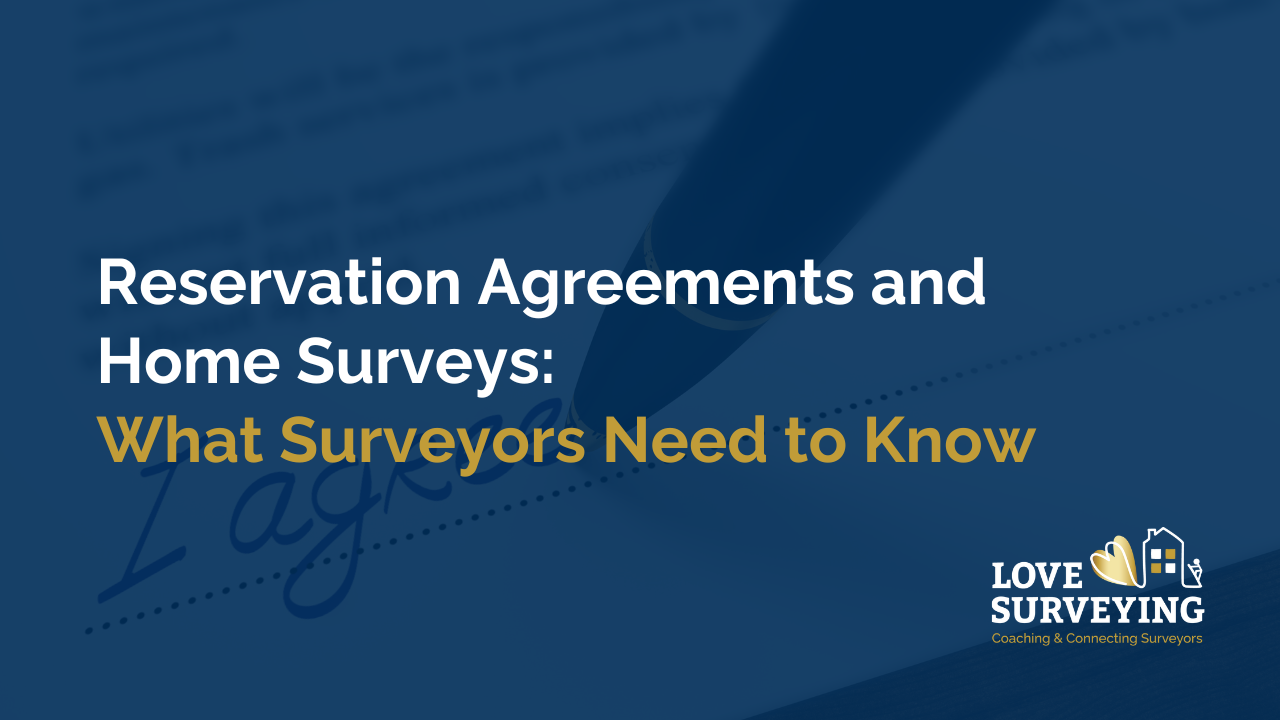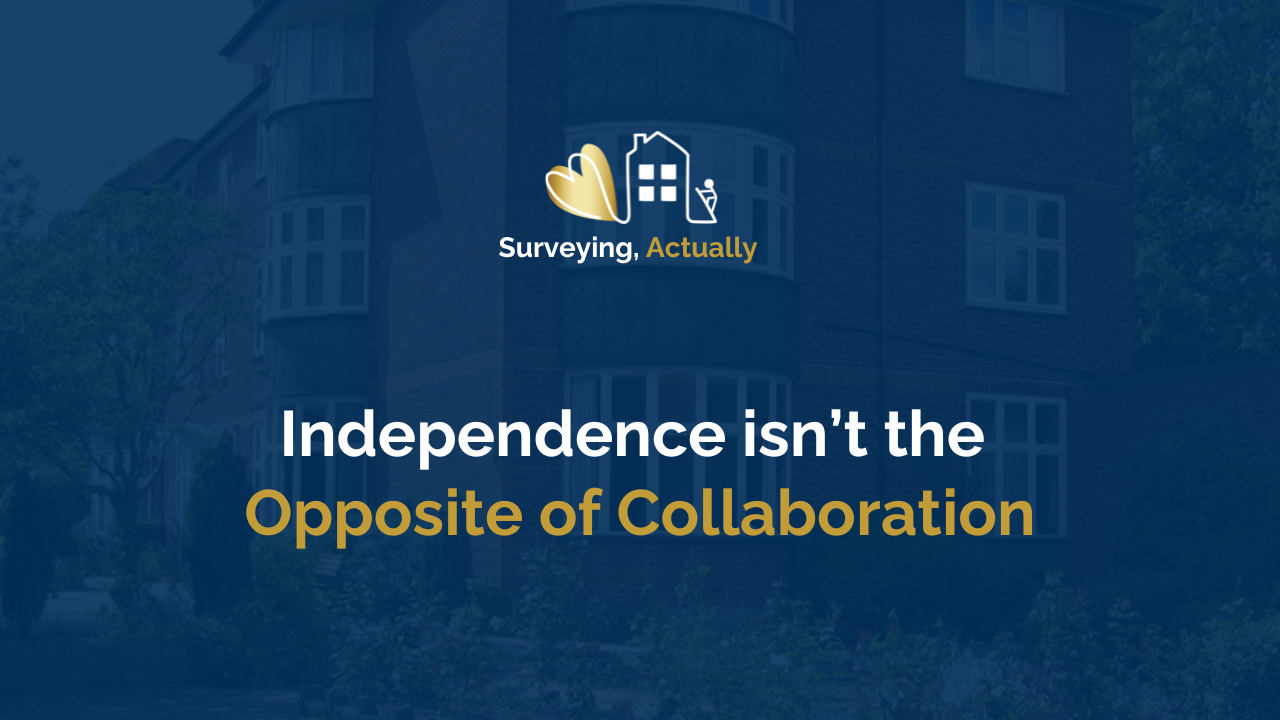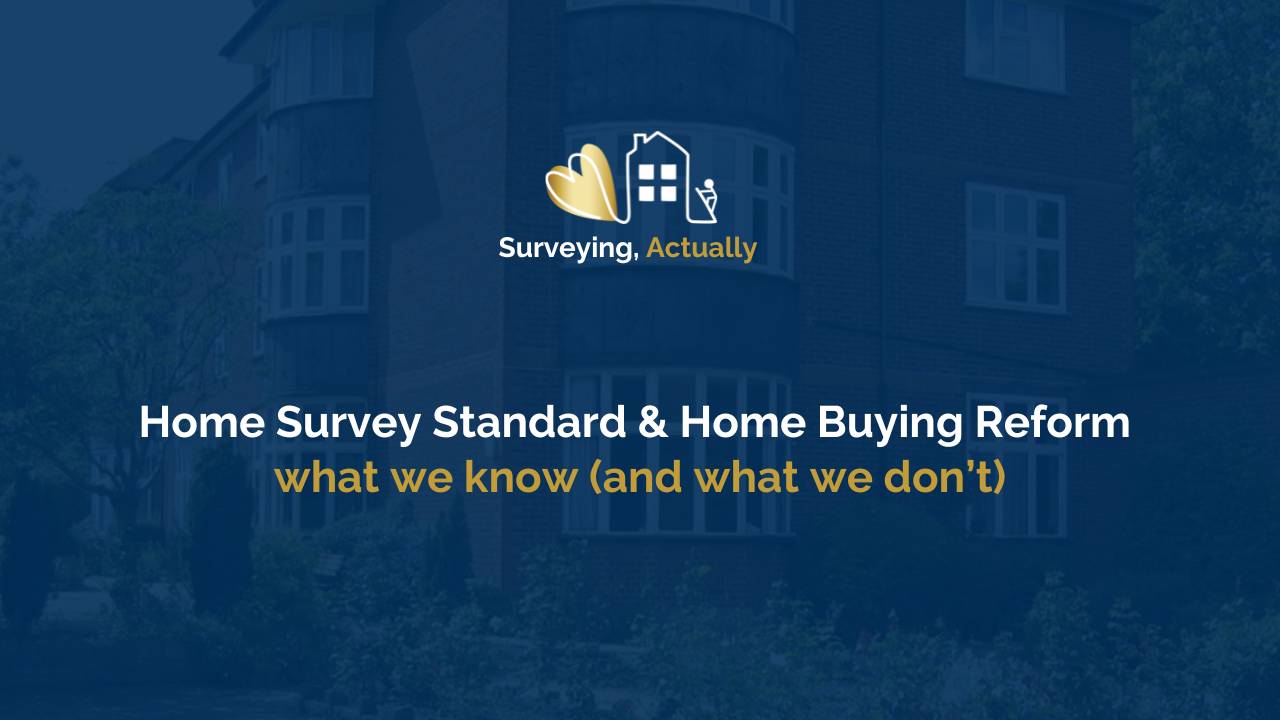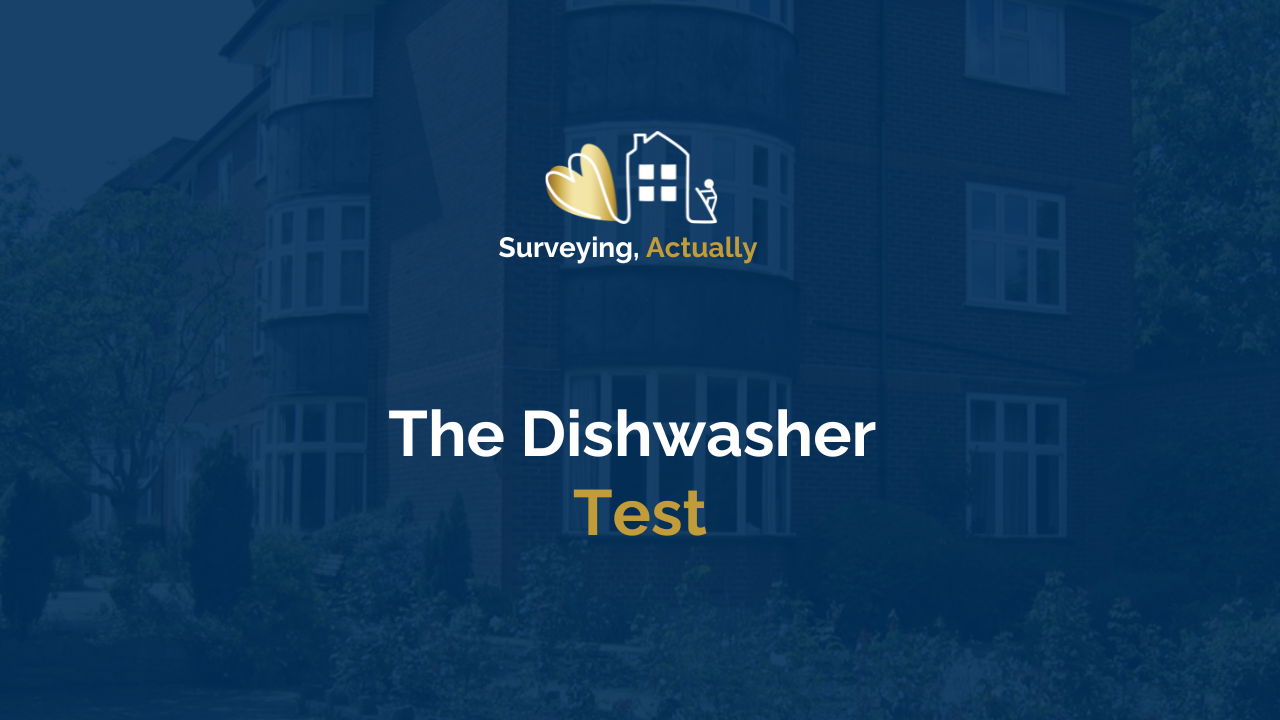Reservation Agreements and Home Surveys: What Surveyors Need to Know
Jul 14, 2025
Reservation agreements aren’t new, but they’re becoming more common in property transactions across England and Wales. And while they may seem like something for solicitors and agents to deal with, they carry very real implications for how surveyors provide advice and write reports.
If you’re not asking your clients whether they’ve signed a reservation agreement or are considering it, you could be missing a vital piece of context that affects how your work is used.
And that matters more than you might think.
Why Ask About Reservation Agreements?
A reservation agreement is a formal document between a buyer and a seller that commits both sides to proceeding with a transaction. It usually includes a financial deposit and outlines the circumstances in which either party can withdraw.
They’re typically managed by a third-party organisation, start from a template, and are then finalised to suit the individual transaction. The goal is to reduce fall-throughs and build trust between the parties.
But here’s the issue: once your client has signed one of these agreements, your report may no longer be just for their personal information. It may become evidence in a dispute or a tool in a negotiation with the seller.
A Real-World Example: What Can Go Wrong
I was recently contacted by a surveyor whose report, unbeknownst to him, had been used as evidence in a dispute relating to a reservation agreement. His full survey report was shared with the seller and subsequently reviewed by an independent KC overseeing the matter.
The KC disagreed with some of the CR3 (urgent) classifications in the report, arguing that they were not, in fact, “urgent”.
Context is everything and no two surveys on the same property should ever be the same because no two clients will have the same needs, budget or priorities - and that's the case a buyer is pleading to a seller when they are negotiating. The buyer is presenting their reasoning for why the price should be lower, and the seller is considering their own priorities. But when a third party reads a standalone report, they have no context and little detail.
Although there was no liability owed to the seller, and his report was submitted solely as evidence, the surveyor was left defending his advice. Worse still, he had to decline a follow-up instruction on the buyers’ next property because the outcome of the dispute was still unknown.
He lost fees. He lost sleep. And it was all avoidable.
Had he known how the report might be used by his client, he could have tailored it accordingly and had better control over what was shared. A caveat hidden in the terms is not going to help you.
What Surveyors Need to Be Asking
Now you might be thinking, “Well, if I don’t know, I don’t know.”
But what we do know is that the use of these agreements is increasing. The uptake is being encouraged by policymakers and industry groups. And we have a professional responsibility to ensure that the advice we give is suitable for its intended purpose.
It’s our job to ask, to clarify the scope, not to assume a consumer understands the differences between survey types or how a report will be used. If you don’t know your client has signed a reservation agreement before you are instructed, that's on you.
The Bigger Picture
The way we buy and sell homes in England and Wales is evolving.
And that means we, as surveyors, need to keep pace with that change, not just in terms of technology or legislation, but in how we engage with what consumers actually need.
Because if we don’t give them advice they can use in real-world decisions, whether that’s negotiating with a seller, securing a mortgage, or prioritising repairs, we risk becoming irrelevant.
What You Can Do
Here’s how to stay ahead and protect yourself while delivering better service to your clients:
Ask Every Client
Have you signed or are you planning to sign a reservation agreement? Build this into your onboarding process.
Tailor the Report Purposefully
If the report is likely to be used to renegotiate or justify findings, ensure there is a clear explanation of urgency and client context and make limitations or assumptions explicit. If you are including estimates for the costs of works, ensure they are up-to-date and be prepared to explain their origin to your client.
Provide a One-Page Statement
Instead of the full report, offer a short, targeted summary that your client can share with the seller and agent if needed, protecting your work and helping them communicate effectively.
See This as an Opportunity
These conversations aren’t just about risk management. They’re a chance to be more useful, more relevant, and more valued. By engaging with how your advice will be used, you stand out as a professional who goes beyond the tick-box exercise.
Surveyors aren’t just writing reports; we offer a service which helps people make major decisions.
Understanding the growing role of reservation agreements and how your survey service fits into that means you can offer smarter, more meaningful advice and avoid being caught off guard.
Enjoyed this article?
- You might also like: How to choose Professional Indemnity Insurance
- Find it useful? Please share it with friends or colleagues who might benefit.
Want to support my work? Leave me a quick Google Review or Buy Me a Coffee ☕. Every little helps as a small business.





